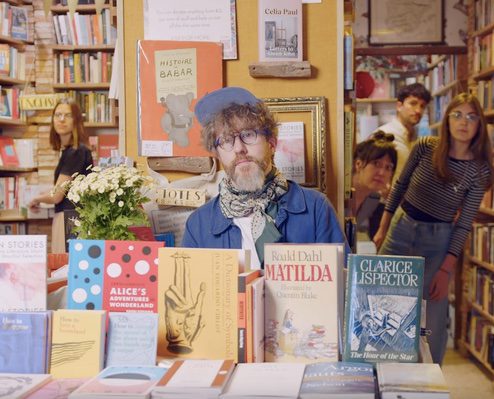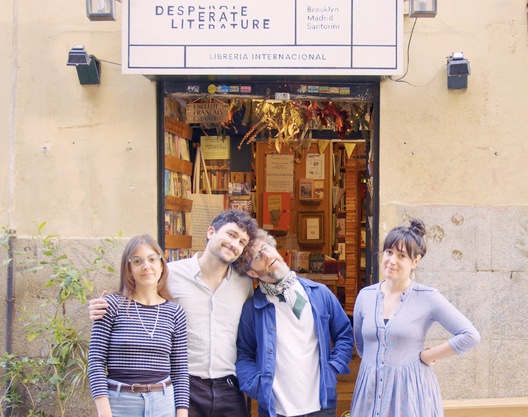Tell us a little about yourself and why you decided to open Desperate Literature?
DL: Desperate Literature is an independent international bookshop since 2015 in the heart of Madrid. We try to build a community through literature – running events, a literary prize, publishing a prize anthology and, of course, sourcing new, used and rare books.
Well, there’s four of us, all long-time booksellers, and I certainly wanted to open my own spot. Suddenly, the space that became Desperate Literature became available and so without a lick of Spanish we took it on… The idea was to help Craig and Corey for a few months, and we loved it so that here we are eight years later!

Was a bookstore a major need in your area?
DL: Madrid is a city of bookshops, but it’s true that the sort of bookshop we run, and the selling of international literature, is something that we feel fitted well into the existing culture. We want to have literature that speaks and dances, something very much alive and of the body, so we try to keep the place intimate and personal, but bringing a wealth of experience around English and French literature along with a selection of lovely editions and international events – I think we can say without too much ado that there was a little niche waiting for us.
What other services and/or events do you put on at Desperate Literature?
DL: Well, we have some fun things in the store, like our Dial-a-Poem, the idea for which we outright “borrowed” from John Giorno, though of course he worked with tape-based answering machines while ours has a little Raspberry Pi computer in it. Our good friend Euan Monaghan over at Structo Magazine made it for us.
We also have a subscription service offering some of our favourite books of dystopian literature, Latin American literature in English and alternative works on the theme of love and the erotic. This is all channelled through our Patreon page, which started during the Pandemic and we recently relaunched with the most ridiculous little short video.
Then there’s our literary prize for short fiction. We’ll be entering our sixth year in 2023 and the whole aim is to promote the best of contemporary fiction while offering real support to our shortlisted and winning authors. Winners get everything from a week’s residency in a 15th Century Italian castle to cash prizes, publication in our yearly anthology (the 2022 edition is just out), events, meetings with a literary agent and a manuscript assessment.
Our events are really important to us, too. Everything from book launches and open-mics to chess nights.

What do you like the most about owning and working in an indie bookstore?
DL: I think that people meet and bond through and over different literatures.
There’s an excitement to that. There’s also a tremendous freedom of being able to shelve what we love and learn as people read and recommend, too.
What does the future of indie bookstores look like?
DL: It’s our opinion that indie bookshops need to do something a little different than your old school bookshop, without becoming cliché, of course. It certainly is our focus to foster a community and although that might not be crucial to indie bookshops per se, it’s important to us. After the end of confinement in Spain, we saw a lot of new bookshops opening and that felt great, they each have such a personal identity and I think it’s a true blessing to have unique bookshops throughout the city.
What is the importance of people having access to international works of writing?
DL: Wow. All we have to do is look at the polarisation of the world around us. If different languages shape our minds in unique ways and diverse literatures open us to thinking that may be radically different from our own, then don’t we desperately need more of that?
